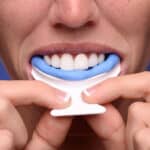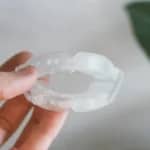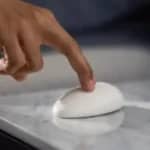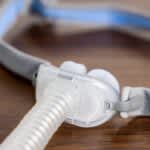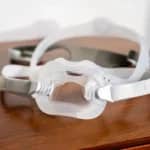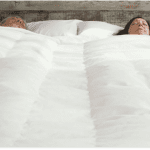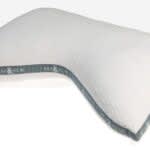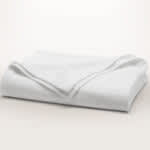Sweating is a normal process that helps to cool the body. However, if you’ve ever woken up to excessive sweating, you know how uncomfortable it can feel.
Night sweats are common, and most of the time, they do not indicate a serious medical problem. A number of causes of night sweats are specific to women and people assigned female at birth. Up to 80% of women experience hot flashes and night sweats related to menopause, and as many as 60% experience them during pregnancy.
Understanding what causes night sweats in women can help you learn how to manage this symptom and get your best night’s sleep. It can also help you decide when you should speak with a doctor about your night sweats.
Key Takeaways
-
- Common causes of night sweats include hormonal changes during menopause, medications, infections, and certain medical conditions.
- Manage night sweats with breathable sleepwear, a cool bedroom environment, and stress-reduction techniques before bed.
- Seek medical advice if night sweats are severe, persistent, or accompanied by other concerning symptoms.
Common Causes of Night Sweats in Women
The most common cause of night sweats in women is fluctuating levels of female hormones. Hormones are the chemical messengers that control many body functions, ranging from sexual function to metabolism to mood.
Menopause and Perimenopause
Menopause refers to the time when you stop menstruating. The term perimenopause refers to the years leading up to and the year after your last period. The average age of menopause is 52 years old. However, perimenopause symptoms often begin years earlier.
During perimenopause, ovarian function begins to fluctuate, leading to changes in hormones like estrogen and progesterone. These shifting levels of hormones can cause a number of uncomfortable symptoms including hot flashes and night sweats.
Pregnancy
Pregnancy causes pronounced hormonal changes. This is why hot flashes and night sweats are so common during pregnancy and after giving birth.
Changes in estrogen levels associated with producing breast milk may also lead to night sweats.
Medications
A wide range of medications can cause increased sweating during the day and at night. The following medications are not used solely by women, but the use of some, such as antidepressants, is more common in women.
- Mental health medications: Antidepressants cause increased sweating in 10% to 15% of the people who take them. An antipsychotic drug may also cause excessive sweating.
- Diabetes medications: Low blood sugar can cause sweating and may occur at night. Drugs to treat diabetes that affect blood sugar levels may cause blood sugar levels to drop at night, leading to night sweats.
- Methadone: Methadone is a drug that may be used as part of drug addiction treatment or to relieve pain. Excessive sweating, which can occur at night, is a side effect of methadone use.
- Medications that affect hormones: While many medications may cause night sweats, certain cancer treatments, called hormone therapies, are especially likely to cause hot flashes and night sweats. Hormone therapies for breast cancer, such as tamoxifen and aromatase inhibitors, commonly cause night sweats.
Infections
Infections can lead to night sweats in people of any gender. Any infection that causes a fever may cause night sweats. A number of infectious diseases are marked by night sweats as a significant symptom, including:
- Human immunodeficiency virus (HIV)
- Tuberculosis (TB)
- Bacterial infections
- COVID-19
- Malaria
- Diseases transmitted through tick bites
Obstructive Sleep Apnea
Obstructive sleep apnea (OSA) is a common disorder in which people have trouble breathing at night due to collapse of the airway during sleep. Although it is more common in men, about 10% to 15% of women in the United States may experience OSA.
About one in three people with untreated OSA report having frequent night sweats. People with OSA who are undergoing treatment with CPAP, however, experience night sweats far less often.
Night Sweats Could be a Symptom of Sleep Apnea
Night sweats often occur as a result of an underlying issue, like sleep apnea. Answer three questions to understand if you should be concerned.
Less Common Causes of Night Sweats in Women
Less common disorders can also cause night sweats in people of any gender. Although much less likely, it is important to rule out serious disorders that can feature night sweats as an early symptom.
- Overactive thyroid: Also called hyperthyroidism, this condition can lead to increased sweating during the day and at night.
- Cancer: Cancers called lymphomas that begin in the lymph system are the most likely to cause night sweats. Other cancers can cause night sweats as well, including kidney cancer, and certain types of cancer affecting the ovaries and thyroid gland.
- Endocrine tumors: Non-cancerous tumors in the endocrine system can upset the way body temperature is regulated, leading to night sweats. These include insulinomas, which can lower blood sugar at night, and hormone-producing tumors known as pheochromocytomas.
- Primary ovarian insufficiency: Sometimes called premature ovarian failure, this disorder occurs when a person’s ovaries stop working before the age of 40. Symptoms are similar to menopause symptoms and may include night sweats.
When to Talk to Your Doctor About Night Sweats
Although night sweats are usually due to benign causes, it may be helpful to discuss them with your doctor. Certain circumstances may warrant medical evaluation.
- Drenching night sweats: Night sweats that leave the body and bed soaked, requiring that clothes and bedding be changed, should be discussed with a doctor.
- Frequent night sweats: Night sweats that happen every night are more concerning than night sweats that happen only occasionally.
- When symptoms disrupt your life: If night sweats are interfering with sleep and making you feel less rested during the day, you may benefit from talking to your doctor about steps to reduce symptoms.
- When you have other symptoms: If you have other symptoms of infection or cancer, such as cough, breathing problems, diarrhea, pain, swollen lymph nodes, fatigue, or unexplained weight loss, it is a good idea to meet with your doctor.
How to Reduce Night Sweats
In many cases, the best way to reduce or eliminate night sweats is to treat the underlying cause, such as hormone fluctuations or infections. Your doctor may suggest a medication change or adding a drug to reduce symptoms.
Menopausal Hormone Therapy
When perimenopause or menopause are causing problems with night sweats, menopausal hormone therapy (MHT) may be considered. These treatments help keep the levels of female hormones like estrogen in the body at steady levels. MHT may be delivered via patches, pills, implants, gels, or creams, and can be very effective at treating night sweats and other symptoms.
However, there are risks associated with MHT. If you are considering menopausal hormone therapy for night sweats and other symptoms of perimenopause and menopause, it is important to discuss the risks versus the benefits of this treatment with your health care provider.
Shop the Best Cooling MattressesComfort Measures
There are a number of steps you can take at home to help yourself feel cooler and more comfortable at night.
- Lower the temperature: Most people will feel comfortable with a room temperature between 65 to 68 degrees. Layering your bedding will give you more control over your night time body temperature.
- Have a cool drink: A few sips of cold water or another cool drink right before you go to bed may help keep you cool down and feel more comfortable as you fall asleep.
- Wear layered, loose cotton clothes: Dress in layers so you can remove some clothing when a hot flash strikes. Wear fabrics like cotton that are breathable or fabrics that wick away moisture.
- Keep the air moving: Make sure you have good air circulation in the bedroom. Open a window and consider using a fan to keep the air moving.
- Stay away from alcohol and spicy foods: Even small amounts of alcohol can disrupt your sleep quality. Spicy foods can aggravate menopause symptoms.
- Avoid large meals and caffeine late in the day: Although a light meal or snack shouldn’t be a problem, avoid heavy foods and large meals close to bedtime. Stay away from products containing caffeine later in the day. These include coffee, tea, chocolate, and soda, which can interfere with a good night’s sleep.
Frequently Asked Questions About Night Sweats in Women
In most cases, no. Although cancer can cause night sweats, most of the time, night sweats are caused by something else. However, because cancer is so serious, it is a good idea to discuss night sweats with your doctor, especially if they leave you drenched, occur frequently, or if you have other signs of cancer like unexplained weight loss or lymph node swelling.
Night sweats end eventually, for most people. The average length of time women experience night sweats and other related menopause symptoms is about seven and a half years. About 1 in 3 women, however, continue to experience symptoms for 10 years after their last menstrual period.
Older women may experience night sweats for a variety of reasons. One study found that almost 1 out of 10 women still experienced hot flashes at the age of 72. A small proportion of women continue to have these symptoms even 20 years after their last menstrual period.
Night sweats in older women may have other causes that are unrelated to menopause. These causes include infections, medication side effects, obstructive sleep apnea, endocrine problems such as an overactive thyroid, and cancer.
While people of all genders may experience night sweats, they are more common in people assigned female at birth because of natural changes in female hormone production as a result of aging, pregnancy, and other circumstances.
In some cases, medications can help make night sweats less bothersome for women. For instance, menopausal hormone therapy may be used to keep hormone levels steady, resulting in fewer symptoms. But it is important to discuss the risks of menopausal hormone therapy with your health care provider.
Treatments that do not affect hormone levels but may relieve symptoms of menopause are also available. If your night sweats are not related to perimenopause or menopause, medications may be used to treat the underlying cause, such as an infection or cancer.
The most effective way to reduce night sweats depends on what is causing them. Talk with a doctor for assistance determining the cause of your night sweats and the most appropriate treatment.
Regardless of their cause, try taking steps to improve your nighttime comfort. These can include lowering the temperature in your bedroom, dressing in cool, breathable layers, and ensuring good air circulation.
References
The Sleep Doctor Forum: Real Experiences, Real Connections
Continue the discussion on the Sleep Doctor Forum. Connect with experts and fellow forum members on CPAP, sleep apnea, and all things sleep. A priceless resource that’s free to join.



